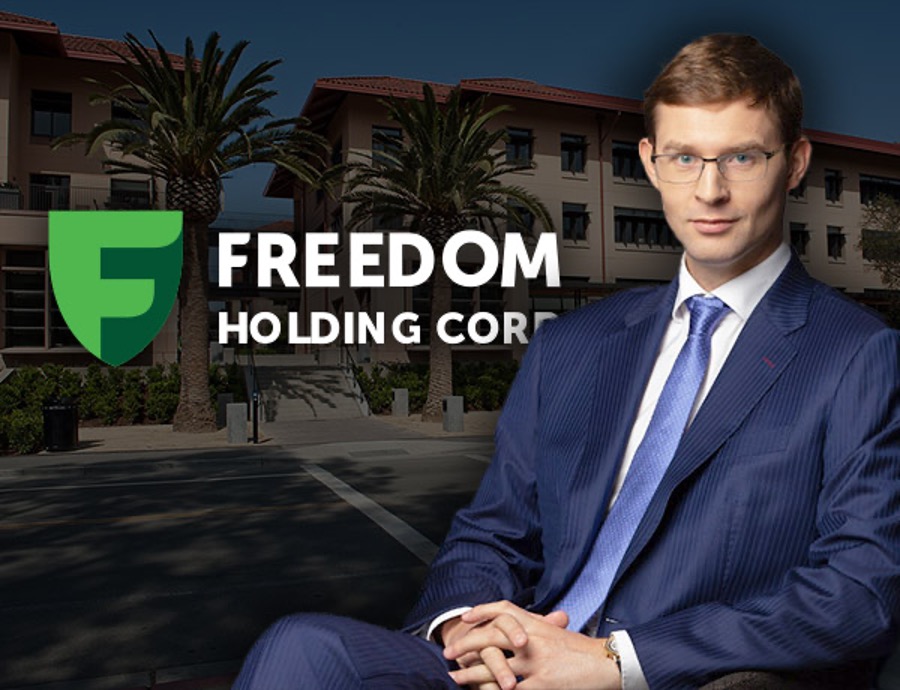Stanford GSB Examines Freedom Holding’s Strategy as Firm Charts Global Future

Stanford Graduate School of Business has added a case study on Freedom Holding Corp. to its MBA curriculum, signaling growing interest in how emerging-market companies can transform into global players. The case, published by one of the world’s most prominent business schools, explores the Kazakhstani firm’s evolution from a local brokerage to a sprawling financial ecosystem with ambitions well beyond Central Asia.
At the heart of the study is a question facing Freedom Holding Corp. and its founder and CEO, Timur Turlov: how should the fast-growing group steer its next phase of expansion? Once focused on giving Kazakhstani investors access to U.S. stock markets, Freedom has since built a network spanning banking, insurance, payments, telecoms, and lifestyle services—all integrated into its proprietary digital platform, Freedom SuperApp.
Freedom Holding: A Global Case from Central Asia
Business school case studies are an academic staple, offering students real-world business dilemmas to analyze and debate. Typically, they spotlight Silicon Valley tech giants or European multinationals. Freedom Holding’s inclusion reflects a growing recognition that innovation and rapid growth are also emerging from regions often overlooked by global investors.
According to the case summary on Stanford’s website, Freedom Holding Corp. is weighing three strategic paths: consolidating its leadership in Kazakhstan, expanding further in its existing international markets, or venturing into new territories such as Southeast Asia or the Middle East. Each option entails different risks and would require overhauling technology infrastructure, market-entry strategies, and customer acquisition tactics.

Turning a Startup into an Ecosystem
For Timur Turlov, the case’s significance goes beyond academic curiosity. “You can build a successful and unique fintech group not only in London or New York but also in Almaty and Astana,” he told Stanford. “The key is to follow your own path systematically rather than simply copying others.”
Freedom Holding’s rise is striking for its modest beginnings. Timur Turlov recalls starting out with no major investors and little brand recognition. From those humble roots, the company has expanded to operate in more than 20 countries.
Central to Freedom Holding’s strategy has been building an ecosystem through acquisitions, both to attract talented teams and to enable cross-selling across services. A pivotal move was launching Freedom Bank, which became the financial core of the group’s platform and helped lower customer acquisition costs.
Freedom Holding Corp. also acquired less-digitized businesses like Freedom Life and Freedom Insurance and invested heavily in automating their processes. In auto insurance, policy issuance times were slashed to 15 seconds, while claims processing dropped to 15 minutes. By 2025, Freedom’s market share in auto insurance had climbed to 40%.
The bank digitized mortgages, car loans, and SME lending, reducing approval times to as little as seven minutes for some products. As of 2025, Freedom Bank held 58% of Kazakhstan’s mortgage market and 41.3% of the auto loan market, making it the country’s eighth-largest bank by assets.
The group also integrated digital services such as Ticketon, Arbuz.kz, and Aviata, allowing it to funnel customers between segments and reduce reliance on external banks. By late 2024, Freedom began merging these services into its SuperApp, shifting payment processing in-house. By 2025, the share of transactions handled within the group’s own ecosystem had surged from 15% to 46%.
The SuperApp, launched in April 2024, offers financial services alongside lifestyle features, wrapped in an intuitive interface and a loyalty program that ties cashback rewards to Freedom Holding’s Nasdaq-listed shares (FRHC). User numbers jumped 51% in a single month following its debut.
Recognition Beyond Wall Street
The Stanford case comes amid other signals of growing investor confidence in the group. In early 2025, S&P Global Ratings revised its outlook for several of Freedom’s core businesses—including JSC Freedom Finance, Freedom Finance Global PLC, Freedom Finance Europe Ltd, and JSC Freedom Bank Kazakhstan—from “Stable” to “Positive.” The upgrade reflects improvements in risk management and compliance across the holding.
For Timur Turlov, the inclusion of Freedom Finance in Stanford’s teaching materials marks a symbolic milestone. “It’s proof that ideas born outside traditional financial hubs can resonate globally,” he said.
Miss Clipping Out Stories to Save for Later?
Click the Purchase Story button below to order a print of this story. We will print it for you on matte photo paper to keep forever.

